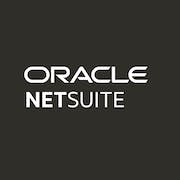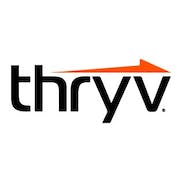Are you looking for the best sales tracking software? Our comprehensive buyer's guide has got you covered with expert insights on main features, and considerations to make an informed decision to boost your sales today.
Are you tired of guessing which sales tactics work and which ones don't? Are you struggling to measure the performance of your sales team? If so, you're not alone. These are common problems faced by businesses of all sizes which can be addressed by the latest advancements in technology called sales tracking software. About 58% of US companies are increasing their sales enablement budgets every year, indicating a growing investment in tools and technologies that support sales efforts, including sales tracking software. In this buyer's guide, we'll take a deep dive into what this solution can do for your business, what features you should look for, and how to choose the best one for your needs.
What is sales tracking software?
This is a tool that enables businesses to track and manage their sales activities. It is a type of software that allows companies to monitor their sales pipeline, identify opportunities, and forecast revenue. This system helps businesses to improve their sales performance by providing them with a comprehensive view of their sales activities.
Common use cases include:
- Lead management: The software is used to manage leads and track their progress in the sales pipeline.
- Forecasting: It is used to forecast future sales based on past performance and current trends.
- Performance monitoring: It also enables businesses to track the performance of their sales team and identify areas for improvement.
- Reporting: This tracking tool generates reports on sales activities and offers insights into sales performance.
Types of companies that use this tool include:
- Small and medium enterprises (SMEs): SMEs use sales tracking software to keep track of their sales activities and optimize their sales performance.
- Large enterprises: Large enterprises use it to manage their complex sales processes and track their sales progress.
- Startups: Startups use the solution to manage their sales activities and build their sales pipeline.
What are the benefits of using a sales tracking solution?
As a business owner, keeping track of sales is one of the most important tasks to ensure success and growth. But, as your business expands, it can be increasingly difficult to manually manage sales data. The tool offers some key benefits such as:
- Improved accuracy: Manually recording sales data may lead to errors, which can have a significant impact on your business. Integrating sales tracking software automates the process, reducing the risk of human error.
- Time-saving: Sales tracking technology streamlines the process of tracking sales, saving you time and increasing productivity. It eliminates the need for manual data entry and automatically generates reports that allow you to analyze sales trends quickly.
- Enhanced customer relationship management: A sales tracking program helps you provide better customer service by giving you access to key information about your customers. You can analyze their purchase history and preferences, and use this data to tailor your marketing efforts and build stronger customer relationships.
- Improved sales forecasting: It provides accurate sales data that you can use to evaluate your business performance and forecast future sales. This data is essential for making informed decisions and planning for the future.
- Increased profitability: A sales tracking app helps you identify areas of your business that are performing well and those that need improvement. With this data, you can make informed decisions that increase profitability by optimizing sales strategies, reducing costs, and improving customer satisfaction.
10 key features of sales tracking software
As businesses grow, it can become increasingly difficult to manage sales without proper a solution. In this section, we will highlight the top 10 common features of this tracking software solution that businesses find most useful.
1. Pipeline management:
A sales tracking system allows businesses to monitor their sales pipeline and identify potential areas of concern. By tracking the different stages of the sales process, sales teams can ensure that deals are moving through the funnel smoothly.
2. Customizable dashboards:
Dashboards provide a quick overview of sales data and can be customized to display the most relevant information. The package often comes with pre-built dashboards, but businesses can also create custom dashboards to track specific KPIs.
3. Sales forecasting:
By analyzing past sales data, a sales tracking app can assist organizations with sales forecasting. This feature is particularly useful for setting targets and adjusting sales strategies.
4. Real-time data integrations:
Sales tracking technology can integrate with other systems for real-time data syncing. This means that businesses don't need to manually input data into their sales tracking software and can instead rely on automatic updates.
5. Mobile access:
A tool that is accessible from mobile devices can help sales teams to keep track of their deals while on-the-go. This feature provides greater flexibility and can help teams to close deals faster.
6. Team management:
A sales tracking platform often comes with team management features that allow administrators to set permissions and manage user access. This feature is especially useful for larger organizations with multiple sales teams.
7. Reporting:
With this powerful tool, businesses can generate reports to analyze sales data and identify trends. These reports can provide valuable insights for sales teams and help organizations to make data-driven decisions.
8. Notification alerts:
Notification alerts can be set up to notify sales teams of important updates, such as new leads or deals closing. This ensures that sales teams are always aware of any changes in the sales pipeline.
9. Customer relationship management (CRM) integrations:
It can integrate with CRM systems, which can provide sales teams with greater insights into customer behavior and ensure that customers are being managed effectively. Approximately 80% of customers expect an immediate answer to their sales questions. Sales platforms enable salespersons to understand customer behavior accordingly, highlighting the importance of sales tracking software in enhancing customer interactions and sales outcomes.
10. Data security:
Sales data is often sensitive, which is why most sales tracking systems come with advanced security features. Data encryption, user authentication, and role-based access control are just some of the measures that can be put in place to protect sensitive sales data.
Things to consider when implementing a sales tracking tool
There are a wide range of software options available in the market, and choosing the right one can be a daunting task. Let us discuss the most crucial factors that businesses should consider when purchasing such a tool:
1. Features:
When purchasing a tracking tool for sales, it is essential to choose one that offers the features that your business requires. The program should be customizable to fit the needs of your business and should offer features such as lead and opportunity tracking, forecasting, analytics, and integration with other tools.
2. Ease of use:
The system should be user-friendly and easy to navigate. It should be intuitive and require minimal training for your team to start using it. Complex software with a steep learning curve may reduce productivity and discourage your team from using it, leading to poor adoption rates.
3. Price:
The price of the application is a crucial factor to consider because you don't want to spend too much money on a tool that doesn't deliver the results you require. However, the lowest-priced software may not have all the essential features that your business needs. It is essential to strike a balance between what you need and what you can afford.
4. Customization:
Every business is different, and sales tracking software should be customizable to meet your business's specific needs. The solution should allow you to set up custom fields and workflows to match the sales processes of your business.
5. Scalability:
As your business grows, your sales tool should grow with it. The one you select should be scalable to accommodate changing business needs and accommodate your business's growth. Choose one that can handle an increasing number of leads, users and offer robust analytics tools for forecasting and revenue projections.
6. Security:
Your sales data and customer information are critical and must be kept secure. The platform should have robust security features such as encryption, two-factor authentication, and device management to ensure the data is secure.
7. Customer support:
The vendor of the solution should provide excellent customer support and technical assistance, with a 24/7 support system. A product that offers hands-on training and regular updates will ensure that your team is always up to date on the latest features.
Emerging trends for sales tracking software
The sales industry is constantly evolving, and staying up-to-date on the latest trends is essential for success. Sales tools are vital for managing sales processes and increasing efficiency, but what are the biggest trends to watch out for this year and beyond?
- Firstly, automation is set to become a game-changer, as sales teams look to streamline their workflows and save time. AI-powered tools can help with everything from lead generation to customer management, delivering insights and recommendations that drive revenue growth.
- Secondly, integrations with other software tools are on the rise, as businesses look for end-to-end solutions that work seamlessly together. This means that sales tracking technology needs to be flexible and adaptable, integrating with everything from email providers to social media platforms.
- Thirdly, mobile optimization is crucial, with sales teams increasingly working from tablets and smartphones. Sales solutions need to be accessible on-the-go, with user-friendly interfaces and responsive design.
- Finally, data analytics is set to become even more important, as businesses look for ways to draw insights from large amounts of customer and sales data. The platform needs to offer powerful reporting and analytics tools, helping businesses to identify trends, track KPIs, and optimize their sales processes.
Conclusion
Implementing the right sales tracking solution can ultimately lead to sustained business growth and as you explore options, consider your specific needs to ensure you choose one that aligns with your business goals. Remember, the right product is not just a tool but a strategic asset that can propel your business towards your business success. Embrace the technology, train your team, and continuously refine your strategies to stay ahead.







